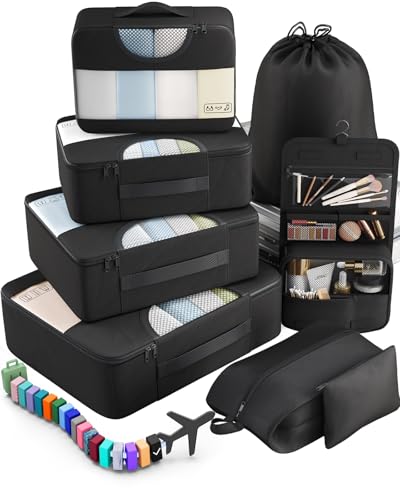In Central African Republic, they use Type C and E power plugs and outlets. The voltage is 220V, and the frequency is 50Hz.
So, you’ll need a travel adapter in Central African Republic. Their plugs and outlets are different from the Type A and B ones we use back in the States.
Quick Overview of the Plugs in Central African Republic:
- Plug type in Central African Republic: C and E
- Standard voltage: 220V
- Frequency: 50Hz
- Need a travel adapter? Yes, you do need a travel adapter
- Need a voltage converter? Don’t assume — check the power specs
- Recommended plug adapter: Vintar Universal Travel Adapter Kit
Our content is built on official sources, including country-specific electrical guidelines, IEC standards, and insights from real travelers who’ve experienced it firsthand.
The Only Travel Adapter You’ll Need in Central African Republic
Don’t let the wrong adapter ruin your trip. We don’t sell them, but we’ve done all the research to find the best one for Central African Republic—so you can charge up stress-free. Here’s the one we recommend:
Recommended Travel Plug Adapter
by 1,000+ travelers on Amazon
If you’re already on your way—or even at your destination—and realized you forgot a power adapter, no big deal. In most countries, you can usually grab one at the airport or pick one up at a nearby shop.
That said, it’s a smart move to get one ahead of time for your next trip. You’ll know it works, skip the last-minute scramble, and avoid getting stuck with a cheap one that might not hold up.
Travelers going through the Central African Republic often also visit Republic of the Congo, Chad, or Cameroon. Not all countries use the same plugs.
Power Outlets in Central African Republic
In Central African Republic, they use Type C and E power plugs and outlets.
Type C

Type C outlets have two round prongs and no grounding pin. Type E and F plugs usually fit too, but grounded plugs will need an adapter.
Type E

Type E outlets have two round prongs and a grounding pin at the top. Type C and F plugs will also fit.
Do You Need a Voltage Converter?
Your electronics must match the voltage of the country you’re visiting, and in Central African Republic, the voltage is different from the 120V we use in the U.S. That means you’ll probably need a converter.
Always check the label on your device before plugging it in abroad. If it shows “100-240V, 50/60 Hz”, your device supports both 120V and 220-240V and doesn’t need a voltage converter. This is common for laptops, tablets, smartphones, cameras, and rechargeable toothbrushes.

Which Travel Devices May Need a Converter?
Don’t want to guess which converter works? Here are the best-reviewed ones worth checking out.
| Device | Need Converter? | Notes |
|---|---|---|
| Phone | ❌ No (usually) | Most modern phone chargers are dual voltage (100–240V) |
| Laptop | ❌ No (usually) | Check the power brick label for 100–240V |
| Hairdryer | ✅ Yes (often) | High wattage; many models are not dual voltage |
| Electric toothbrush | ⚠️ Check voltage | Some models are 110V only |
| Camera / DSLR | ❌ No (usually) | Most chargers are dual voltage |
| Power bank | ❌ No | Charges via USB, adapter is enough |
| Electric shaver / trimmer | ⚠️ Check voltage | Older or cheaper models may not support 230V |
| Tablet / iPad | ❌ No | All models are dual voltage |
| Portable fan | ✅ Yes (sometimes) | Many models are not compatible with 230V |
| Game console | ⚠️ Check voltage | Newer consoles like PS5 and Xbox are often dual voltage — check to be sure |
| Bluetooth speaker | ❌ No (usually) | Charges via USB |
| E-reader (Kindle, etc.) | ❌ No | USB charging only, no converter needed |
Top Travel Essentials to Pack
With the basics covered, these are the extras that seasoned travelers always bring along. Simple tools that do a lot.
Digital Luggage Scale
Packing Cubes
Power Bank
More About Central African Republic
The Central African Republic is off most travelers’ radar—and that’s kind of its charm. You’ll find untamed forests, rare wildlife, and cultural pockets not seen in guidebooks.
That said, security is a major concern. Armed conflict, crime, and civil unrest are ongoing, and the U.S. government advises Americans not to travel there. Any trips require careful prep, trusted local guides, and serious risk awareness.
If you’re equipped and you go, there’s raw beauty to be found—the lush wilderness, local cultures, and sites like the Boali falls offer a gritty, authentic African experience for those who can handle the challenges.
Top places to visit in the Central African Republic: Bangui.




